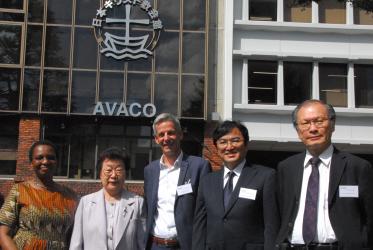Displaying 1 - 15 of 15
18 September 2019
A passionate Korean feminist and ecumenist
21 August 2019
Peacemakers at work in Sri Lanka
29 April 2019
Peace is common denominator of all major religions
05 March 2019
Unifying faiths in peace and harmony through dialogue
10 April 2018
WCC delegation visits China
04 January 2018
G20 summit: call to pray for peace in Hamburg
07 July 2017
Assembly renews churches’ commitment towards justice and peace
08 November 2013
Concern and solidarity for Bangladesh
17 May 2013







